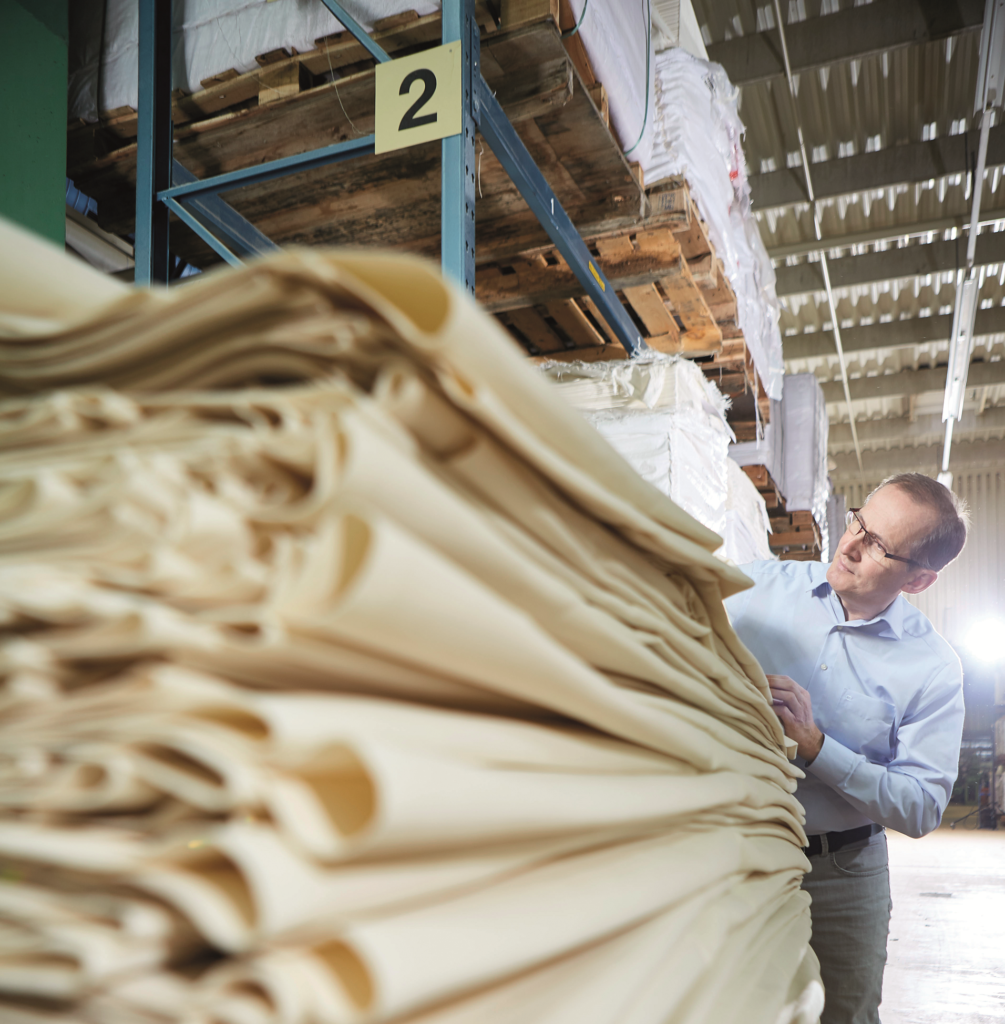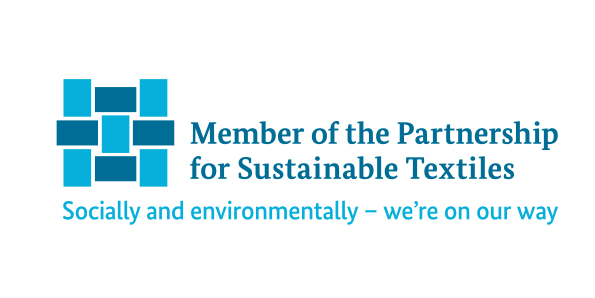Our supply chains
Risk-based supply chain management
Sustainability in the textile industry means much more than just processing ecologically produced cotton. It poses different challenges for companies at every stage of the value chain. This includes, among other things, compliance with human rights due diligence or the avoidance of negative sources of environmental impact along the supply chain.
We take a risk-based approach to our supply chain management. The basis for measures and requirements is the country risk analysis. Depending on the level of country risk, suppliers must meet certain requirements in order to work with us.

Raw fabric
We buy about a third of our raw fabric from just next door: At a spinning and weaving mill that belonged to our company until 2011 and is only two rolling doors away. → learn more

Dyes and auxiliaries
Without dyes, there can be no coloured, high-performance fabrics – the selection and use of the necessary chemicals are carried out by us with special care and due consideration of ecological standards.
New
Living Wage Project
Kettelhack participates in the Partnership Project on the topic of living wages. Within the framework of a Living Wage Lab,...
Project about Grievance Mechanisms in Pakistan
Kettelhack participates in the Textile Partnership Initiative to strengthen internal factory grievance mechanisms.
Report on the Review Process published!
With the review process, the Textile Partnership has developed its own implementation standard and reporting format for due diligence. The...
We are convinced that only the joint initiative of all stakeholders in the textile value chain can lead to a holistic implementation of sustainability in the textile industry.
That is why Kettelhack joined the Partnership for Sustainable Textiles in 2015. As part of our membership, we get involved, for example, by participating in various working groups or through bilateral exchange with other members.
→ Learn more about our membership
Fairtrade cotton
Fairtrade minimum prices, improved working conditions and a transparent supply chain: The independently controlled Fairtrade label stands for the support of small farmers and workers in the producing countries. Since 2017, we have met Fairtrade’s criteria to use the Fairtrade Cotton label.
"Only when all participants pull together and mutually support one another can we implement sustainability as a guiding principle in the textile industry. The journey is the goal: to achieve ecological, economical and social improvements along the entire value-added chain."
Jessica Burwin, Sustainability Manager
Our supply chains
Sustainability in the textile industry poses different challenges for companies at each stage of the value chain.
Partnership for Sustainable Textiles
The Partnership for Sustainable Textiles aims to achieve social, ecological and economic improvements along the value chain.
Fairtrade cotton
Fairtrade aims to make a significant contribution to justice along the textile supply chain.
About this report
This digital sustainability report meets the requirements of the EMAS Regulation and complies with the requirements of GRI 4 of the Global Reporting Initiative.
EMAS Environmental Statement
As a registered company in the EMAS register, we are obliged to publish an environmental statement. → Here are all the details from our current environmental statement.
